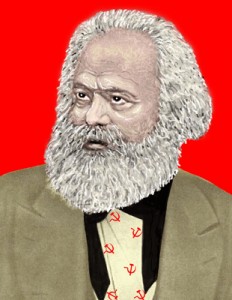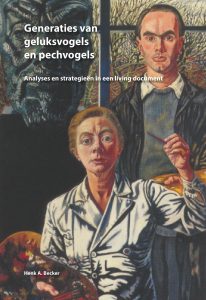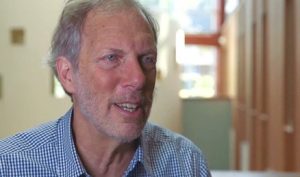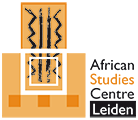
Karl Marx (1818-1883) Ills.: Ingrid Bouws
Over the years, especially following the latest global financial crisis that erupted in late 2007, there has been a renewed interest in the work of Karl Marx. Indeed, Marx remains essential for understanding capitalism, but his political project continues to produce conflicting interpretations. What really motivated Marx to undertake a massive study of the laws of the capitalist mode of production? Was Marx interested in liberty, or merely in equality? And did Marx’s vision of communism have any links to “actually existing socialism” (i.e., the socialist regimes of the former Soviet Union and the Eastern bloc)?
Marx’s Inferno: The Political Theory of Capital, a recently published book by McGill University Professor William Clare Roberts, offers a rigorous and unique interpretation of Marx’s political and philosophical project. The book reveals why Marx remains extremely relevant today to all those seeking to challenge capitalism’s domination and violence — from its exploitation of labor power to the use of oppressive stage apparatuses as reflected in the exercise of police brutality. We spoke to William Clare Roberts about Marx’s project and vision of communism.
C.J. Polychroniou: In your recently published book Marx’s Inferno, you contend that liberty, rather than equality, was Marx’s primary politico-philosophical concern and, subsequently, claim that his work and discourse belong in the republican tradition of political thought. Can you elaborate a bit on these claims and tell us how they are derived from a particular reading of Marx’s work?
William Clare Roberts: I would say it a bit differently. Marx is certainly concerned with equality. Everyone on the left is. The question is: equality of what? This is where freedom, or liberty, comes in. In my book, I argue that Marx shared the radical republican project of securing universal equal freedom. When we talk about equality on the left today, this is too often assumed to mean equality of material wealth or equality of treatment, such that economic equality is the goal in itself. For Marx, economic inequality was not the main problem. It was a consequence and a breeding ground of domination. This was Marx’s prime concern.
To be dominated is to be subject to the whims or caprice of others, to have no control over whether or not they interfere with you, your life, your actions, your body. Republicans, going back to the Roman republic, have recognized that this lack of control over how others treat you is, of itself, inimical to human flourishing. [According to their philosophy], whether or not the powerful actually hurt you is actually less important than the fact that they have the power to hurt you, and you can’t control whether or not or how they use that power. It is in this space of uncertainty and fear that power does its work. So, for example, that an employer can fire a worker at will is usually enough to secure the worker’s obedience, especially where the worker doesn’t have many alternative sources of income. Likewise, that the police have the basically unchecked power to arrest, beat and harass people in many neighborhoods produces all manner of distortions in how people live, regardless of whether they have actually been beaten or harassed. To live free is to live without this fear or this need to watch out for the powerful. And this means being equally empowered.
Traditionally, republicans were concerned only to protect the freedom of a certain class of men within their own political community. In the 19th century, however, workers, women, escaped slaves — people who lived with domination — began to take over this republican theory of freedom and to insist that everyone should enjoy equal freedom. I read Marx as part of this tradition.
Marx’s major innovation in this tradition was to develop a theory of the capitalist economy as a system of domination. Radicals then — like many radicals today — assimilated capital to previous forms of power — military, feudal, or extortionary. They saw the capitalist simply as a monopolist, and the government as the enforcement squad of the monopolists. To Marx, this was insufficient as a critical diagnosis. The capitalists are, like the workers, dependent upon the market. They must act as they do or be replaced by other, more effective capitalists. Marx saw in this market dependence a new sort of all-round social domination. The livelihood of each depends upon the unpredictable and uncontrollable decisions of many others. This impersonal domination mediates and transforms the other forms of domination people experience.
One of the most interesting aspects of your book, at least for me, is the analysis of Marx’s use and understanding of exploitation. Clearly, as you point out, Marx was concerned with the exploitation of labor power, not with exploitation as a general social category. What’s the political significance of this, and what’s your explanation for the general tendency among contemporary radical analyses on capitalism to shy away from the use of expressions like “surplus value” and “class struggle”?
This is a specific development of the previous point. Because the impersonal domination of the market mediates the other aspects of capitalist production, capitalist exploitation is quite unlike other forms of exploitation. As Marx puts it in Capital, capitalists did not invent the exploitation of surplus labor. But, in the past, those who enjoyed the fruits of other people’s labor did so by means of extortion, theft and coercion. Exploitation was, therefore, a drain on production; it disincentivized production. Capitalist production, on the other hand, incentivizes labor and production like nothing else ever has. The exploitation of labor-power — Marx’s technical phrase for capitalist exploitation — is so effective, in fact, that overwork is endemic to capitalist economies.
Marx thought that workers organizing to fight overwork was one of the most important and powerful levers for the development and transformation of capitalist production. The fight against overwork, and for higher wages, was, he argued, the basic spur that drove capitalists to introduce new production technologies. Industrialization and mechanization, in turn, provoke the agglomeration of capitalist producers, increasing both the mass of workers and the concentration of capital. These fights also bring workers together, and give them political experience. All of this, Marx argued, prepared workers to win the battle someday, and to replace capitalist production entirely.
This understanding of the links between exploitation, class struggle, capitalist development and revolutionary politics has largely fallen out of favor among radicals. I am very interested in the history of this theory’s decline, in part because I think the theory had more going for it than many of its critics — even very sympathetic critics — realize….
The criticisms of Marx’s value theory … have diverted attention from the basic observations that underlie Marx’s account of capitalist exploitation. Unlike materials and technologies of production, which provide objectively predictable inputs to the production process, workers must be induced to work, and how much work they provide is a matter requiring constant management and government. Marx’s attention to the workplace as a site of governance and induced activity is as relevant as ever.
The other major reason Marx’s analysis has fallen out of favor is that the link between class struggle and revolutionary politics seemed to be broken. On the one hand, the industrial working class seemed to be integrated into capitalism by winning the franchise, winning higher wages through unionization, and winning social security in the form of the welfare state. On the other hand, the locus of radicalism and revolt seemed to be in the students, the peasants of the colonized world, and the oppressed peoples fighting for national liberation.
But none of these developments actually undermine Marx’s argument, which was that only those dependent upon wages for life — a class that far exceeds industrial workers — have an interest in universal emancipation. Anyone who is dominated or oppressed has an interest in the emancipation of their own group. But Marx thought that wages made people interdependent on one another and dependent upon technologically advanced production to such an extent that wage workers could only liberate themselves — even at a national level — by liberating everyone, everywhere. At a moment when left populism — be it that of Sanders or Corbyn or Mélanchon — seems compelled to reinforce national frontiers, Marx’s argument should be revisited.
Marx’s critique of capitalist economy and society, you argue in your book, was influenced by the poetic imagery of Dante. Is this of political import, or simply of literary significance?
I am wary of too simple a distinction between the literary and the political. Marx rewrote Dante’s Inferno, I argue, because Dante’s moral imaginary was deeply ingrained in the vernacular of the workers’ movement. The literary aspects of Capital — its structure, its metaphors, its images — are integral to its political mission: to reshape the theoretical and political language of the workers’ movement. To us today, it may seem merely literary, but that is because the Christian-Aristotelian moral discourse is no longer part of our vernacular in the way it was in 19th-century Europe.
At the most fundamental level, I think Dante is crucial for Marx’s political argument because the Inferno provides the basic categories of wrong that structure Marx’s argument in Capital. Capitalist society is out of control, violent, fraudulent and treacherous. These are Dante’s categories. Marx reconfigures and redefines them, fleshes them out with political economy, and transforms them into a critical social theory. You don’t need Dante to understand that critical social theory once it is finished, but seeing the Dante in it helps reveal its genesis and structure.
Communism has gotten a bad rap as a result of the experience of “actually existing socialism”: the socialist regimes of the former Soviet Union and the Eastern bloc. Did Marx have an actual vision of communism? And, if so, how does his ideal communist society relate to republicanism?
Marx’s “vision of communism” is notoriously indefinite. I argue that there are good reasons for this. Marx is primarily a diagnostician of domination. He is impressed by the workers’ unfreedom, and spent half his life trying to figure out how the institutions that created that unfreedom work. He was convinced that, if the workers knew how their unfreedom was sustained and reproduced, they would be able to figure out how to organize themselves to abolish it.
Part of this confidence, I am convinced, came from the fact that Marx took for granted that republican institutions — well-known in the realm of politics — could be extended to the realm of the economy without grave difficulties. He thought worker-run cooperative factories pointed the way. He thought workers should elect their managers, and that decisions about production, organization and distribution should be subject to political debate. Revolutionary situations — like that of Paris in 1871 — saw the common people organizing themselves into networks of communal self-government. Marx took this as confirmation of his faith in the workers’ ability to emancipate themselves and create a global framework of interdependent “social republics.”
This emancipatory perspective certainly faded over the course of the 20th century. This was in part due to the harshness of war and the ravages of nationalism, not to mention the reactionary terrors that always stalked the ascension of socialists and communists to government. But it was also prepared by the fact that “rational administration” always vied with freedom as the goal of the socialist movement. From this perspective, it was the “out-of-control”-ness of capitalism that seemed most objectionable. Control and planning seemed more important, therefore, than the equal empowerment of everyone to resist the impositions of others. Command economies resulted in catastrophe.
Equally important, there are real and massive difficulties of logistics and institutional design that confront the effort to organize global cooperative production. The sheer scale of the project boggles the mind. It is very hard to cooperate, even when it is essential for our continued existence. We don’t really know how to do it yet. You can affirm Marx’s critical theory of the society ruled by capitalist production in every detail and then affirm that we do not yet know how to replace that society with something better. Rather than a vision of an ideal communist society, we might take from Marx what he offers: a compelling principle of freedom, by which we can evaluate our social and political situation, and a powerful theory of how the capitalist world disregards, endangers and tramples on that freedom. What we can do about it — that we have to supply for ourselves.
Copyright, Truthout





